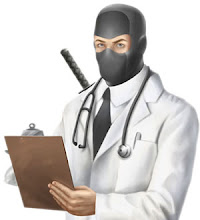TB and STAFF
BCG vaccination will be offered to healthcare workers, irrespective of age, who fulfil all the following criteria:
1. previously unvaccinated (that is, without adequate documentation or a characteristic scar)
2. will have contact with patients or clinical materials.
3. are Mantoux (or interferon-gamma test for latent tuberculosis) negative.
All staff in contact with patients with smear positive pulmonary tuberculosis should be aware of the following principles.
-The importance of BCG immunisation as a basic protection
-The need to report to Occupational Health or senior ward staff if they are unusually susceptible e.g. transplant recipient taking immunosuppressive therapy, HIV positive.
-The extremely low risk of occupationally acquired tuberculosis where appropriate precautions are taken.
-The need to report any symptoms suggestive of tuberculosis to the Occupational
Health Department.
Staff in contact with open pulmonary tuberculosis do not normally need follow up. A decision on this will be made by the Occupational Health Department in conjunction with a Consultant Microbiologist or Consultant Respiratory Physician.
1. previously unvaccinated (that is, without adequate documentation or a characteristic scar)
2. will have contact with patients or clinical materials.
3. are Mantoux (or interferon-gamma test for latent tuberculosis) negative.
All staff in contact with patients with smear positive pulmonary tuberculosis should be aware of the following principles.
-The importance of BCG immunisation as a basic protection
-The need to report to Occupational Health or senior ward staff if they are unusually susceptible e.g. transplant recipient taking immunosuppressive therapy, HIV positive.
-The extremely low risk of occupationally acquired tuberculosis where appropriate precautions are taken.
-The need to report any symptoms suggestive of tuberculosis to the Occupational
Health Department.
Staff in contact with open pulmonary tuberculosis do not normally need follow up. A decision on this will be made by the Occupational Health Department in conjunction with a Consultant Microbiologist or Consultant Respiratory Physician.
Labels: INFECTION



<< Home